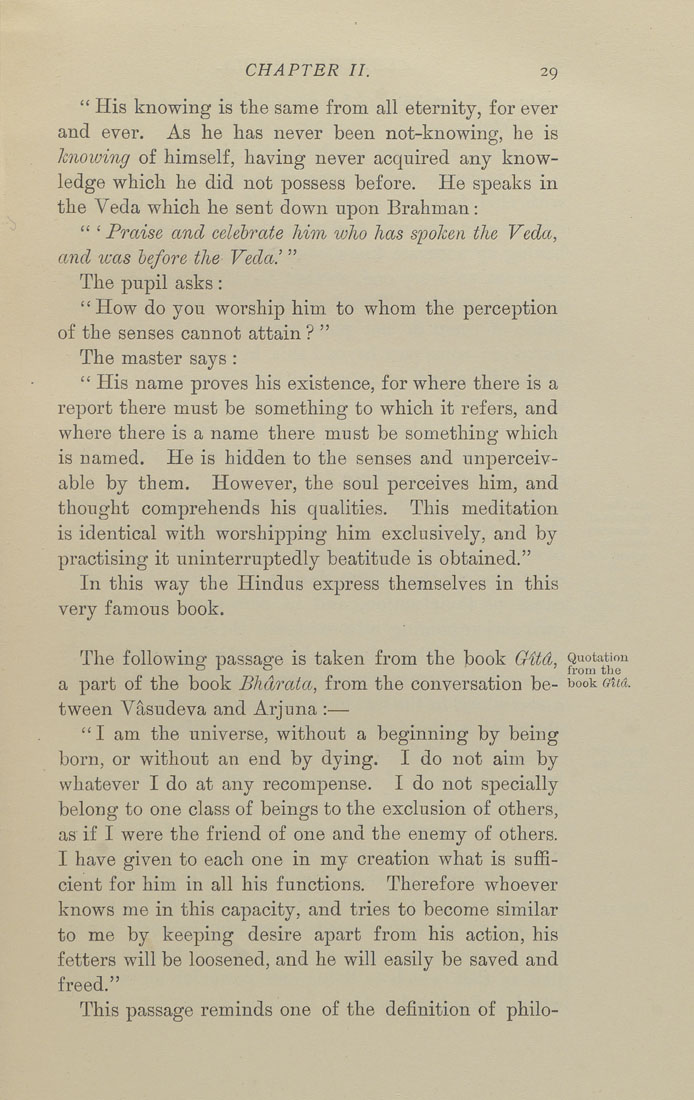Bīrūnī, Muḥammad ibn Aḥmad, Alberuni's India (v. 1)
(London : Kegan Paul, Trench, Trübner & Co., 1910.)
|
||
|
|
|
|
| Page 29 |

CHAPTER II. 29 " His knowing is the same from all eternity, for ever and ever. As he has never been not-knowing, he is knowing of himself, having never acquired any know¬ ledge which he did not possess before. He speaks in the Veda which he sent down upon Brahman: " 'Praise and celebrate him who has spoken the Veda, and was before the Veda.' " The pupil asks: "How do you worship him to whom the perception of the senses cannot attain ? " The master says : " His name proves his existence, for where there is a report there must be something to which it refers, and where there is a name there must be something which is named. He is hidden to the senses and unperceiv- able by them. However, the soul perceives him, and thought comprehends his qualities. This meditation is identical with worshipping him exclusively, and by practising it uninterruptedly beatitude is obtained." In this way the Hindus express themselves in this very famous book. The following passage is taken from the book Gitd, Quotation ° ^ ° . ' from the a part of the book Bhdrata, from the conversation be- book Gitii. tween Vasudeva and Arjuna :— "I am the universe, without a beginning by being born, or without an end by dying. I do not aim by whatever I do at any recompense. I do not specially belong to one class of beings to the exclusion of others, as if I were the friend of one and the enemy of others. I have given to each one in my creation what is suffi¬ cient for him in all his functions. Therefore whoever knows me in this capacity, and tries to become similar to me by keeping desire apart from his action, his fetters will be loosened, and he will easily be saved and freed." This passage reminds one of the definition of philo- |
| Page 29 |







